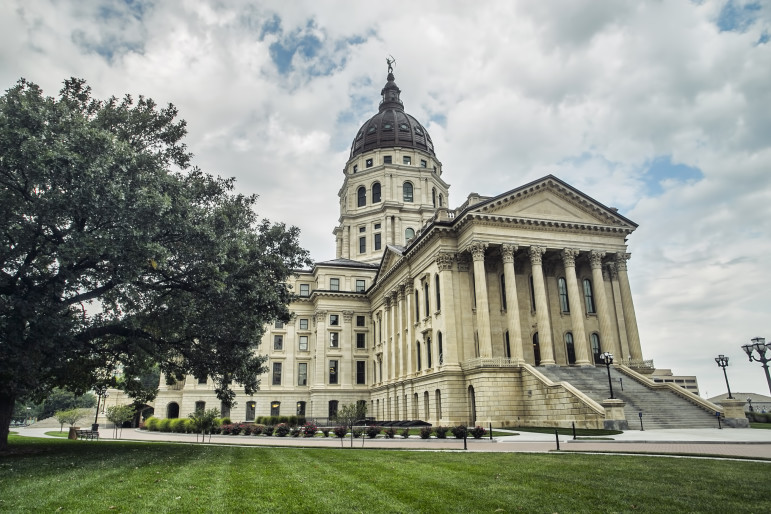
Thinkstock
Kansas State Capitol Building
Kansas has become the latest state to overhaul its juvenile justice system, with a set of reforms projected to reduce the number of juveniles in custody by more than half and save tens of millions of dollars.
Gov. Sam Brownback, a conservative Republican, signed the sweeping legislation, SB 367, after it cleared the Republican-controlled legislature earlier this year with only a handful of dissenting votes during a tough budget season.
 “This bill is about being smart on crime. It aligns our juvenile justice system with what research shows works best to reduce victimization, keep families strong, and guide youth toward a better path,” he said in a news release.
“This bill is about being smart on crime. It aligns our juvenile justice system with what research shows works best to reduce victimization, keep families strong, and guide youth toward a better path,” he said in a news release.
Like recent reforms in other states, the law aims to reduce the juvenile justice system’s reliance on youth incarceration and emphasize the use of community-based treatment programs for young offenders.
Adam Gelb, director of the public safety performance project at Pew Charitable Trusts, said the reforms address the system from top to bottom.
“It is easily one of the most far-reaching and comprehensive juvenile justice reforms in recent memory,” he said. Pew assists states with analyses and policy recommendations.
The reforms are projected to cut out-of-home placements by 60 percent by fiscal year 2022 and save $72 million during a five-year period beginning in fiscal year 2018. Each year, the state will direct any savings from a reduced reliance on youth incarceration to a Juvenile Justice Improvement Fund that will pay for community-based programming.
“It provides a continuous, positive feedback loop when savings are reinvested in the programs that are improving the success rate, which in turn saves more money,” Gelb said.
The law also:
- establishes a multiagency Juvenile Justice Oversight Committee;
- phases out the use of group home placements except in limited circumstances; and
- establishes case length limits that determine how long a juvenile can remain under the court’s jurisdiction.
Some prosecutors in Kansas are skeptical of the new law.
The Kansas County and District Attorneys Association said in a news release that the law will "undermine the discretion of the courts to hold offenders accountable and protect the public."
The group also is concerned about whether funding will be adequate to support the reforms and said prosecutors should have had more say in shaping it.
"A bill this expansive, and potentially impactful deserved more input from those ultimately responsible for its successful implementation. That said, the KCDAA will remain vigilant and actively engaged in the process necessary to ensure this bill achieves the stated goals," the group said.
Kansas is the sixth state to participate in a juvenile justice reform project run by Pew, after Georgia, Kentucky, Hawaii, South Dakota and West Virginia. A bipartisan group of judges, district attorneys, law enforcement officers and public defenders began studying the juvenile justice system in June 2015 before making recommendations to the legislature in December.
The group found that while the juvenile arrest rate in Kansas had dropped more than 50 percent from 2004 to 2013, the number of youth under community supervisions or in residential placements hadn’t fallen as fast. In addition, a growing number of juveniles in out-of-home placements were lower-level offenders, a trend the group attributed to a lack of community-based options.
State Sen. Greg Smith, a Republican who participated in the working group, said he was skeptical about the idea of reforms at first.
“My initial reaction was this is just another way to coddle kids,” he said.
But the data won him over, turning him into a champion for the bill in the Senate. He said it became clear that early intervention and community-based treatment held the most promise to get young people on the right track, rather than locking them up — a case he also made to his colleagues.
“Rather than keeping kids from reoffending we were teaching them to reoffend,” he said.
Benet Magnuson, executive director of the nonprofit justice center Kansas Appleseed, a member of Kansans United for Youth Justice, said he’s thrilled with the legislation.
The group will be encouraging communities to embrace reforms, especially the promise of reinvestment.
“The law’s in place, the funding’s coming into place, but now it’s up to the communities in Kansas to really implement the reforms,” he said.
This story has been updated.